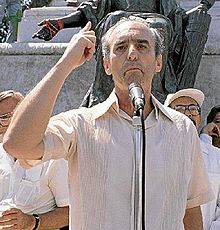Stations of the Cross

The wayside pulpit in our neighbourhood says during Covid19 “God still does home visits”! In other words, a shut Church and limited services does not mean the end of our prayer life. The traditional Lenten practice, the Stations of the Cross, could always be a private meditation on Jesus’s final journey to his Crucifixion as well as a public Church-based or outdoor mini procession round the sculptured or pictured stations. The word “stations” originally came from English priest and pilgrim Fr William Wey who in 1472 walked round the “halting places” of Jesus ‘s passion in Jerusalem. These were later fixed at fourteen by Pope Clement XII in 1731. There are many good practical guidebooks; two I find helpful are ” Stations of the Cross: Then and Now” by Fr Denis McBride (Redemptorist publications) and “Stations of the Cross” by Fr Timothy Radcliffe OP( Bloomsbury) – both still available and accessible on line. There are also St Oscar Romero’s brief reflections on the Stations. As well as a personal examination of conscience structured around a line of Scripture, an image of each station and a brief reflection and prayer, the Stations are also a meditation on how we respond to a suffering and crucified world. Fr Mc Bride includes contemporary images to “recognise that the way of the cross winds through every village town and city in our world. The ancient road located in Jerusalem two thousand years ago; it is a crowded highway populated by millions of people who endure violence and suffering today” St Oscar Romero comments at the First Station, “Your unfair trial goes on duplicated in all the unfair sentences through which innocent people are condemned. You are still the victim of these injustices perpetrated against the weak the defenceless and the voiceless in whom you continue to live and to suffer”. At the same Station Fr Timothy Radcliffe asks “Is it good to be tough on crime when wrong people suffer?” Are we too quick to judge and write off especially the poor? St Oscar Romero prays “Grant us the grace not to burden others with our moral failings but to carry the cross with you… send us people who have the courage to shoulder the crosses of others in solidarity and patience, for our society is crowded with poor Christs crushed by all crosses and weight”.
 The El Salvador martyr Fr Ignacio Ellacuria issued a stark challenge:
The El Salvador martyr Fr Ignacio Ellacuria issued a stark challenge:
“I want you to set your eyes and hearts on these people who are suffering so much, some from poverty and hunger, others from oppression and repression then, standing before these people thus crucified, ask yourselves what have I done to crucify them ? What do I do to ‘uncrucify’ them what must I do for these people to rise again?”
*****************************************
